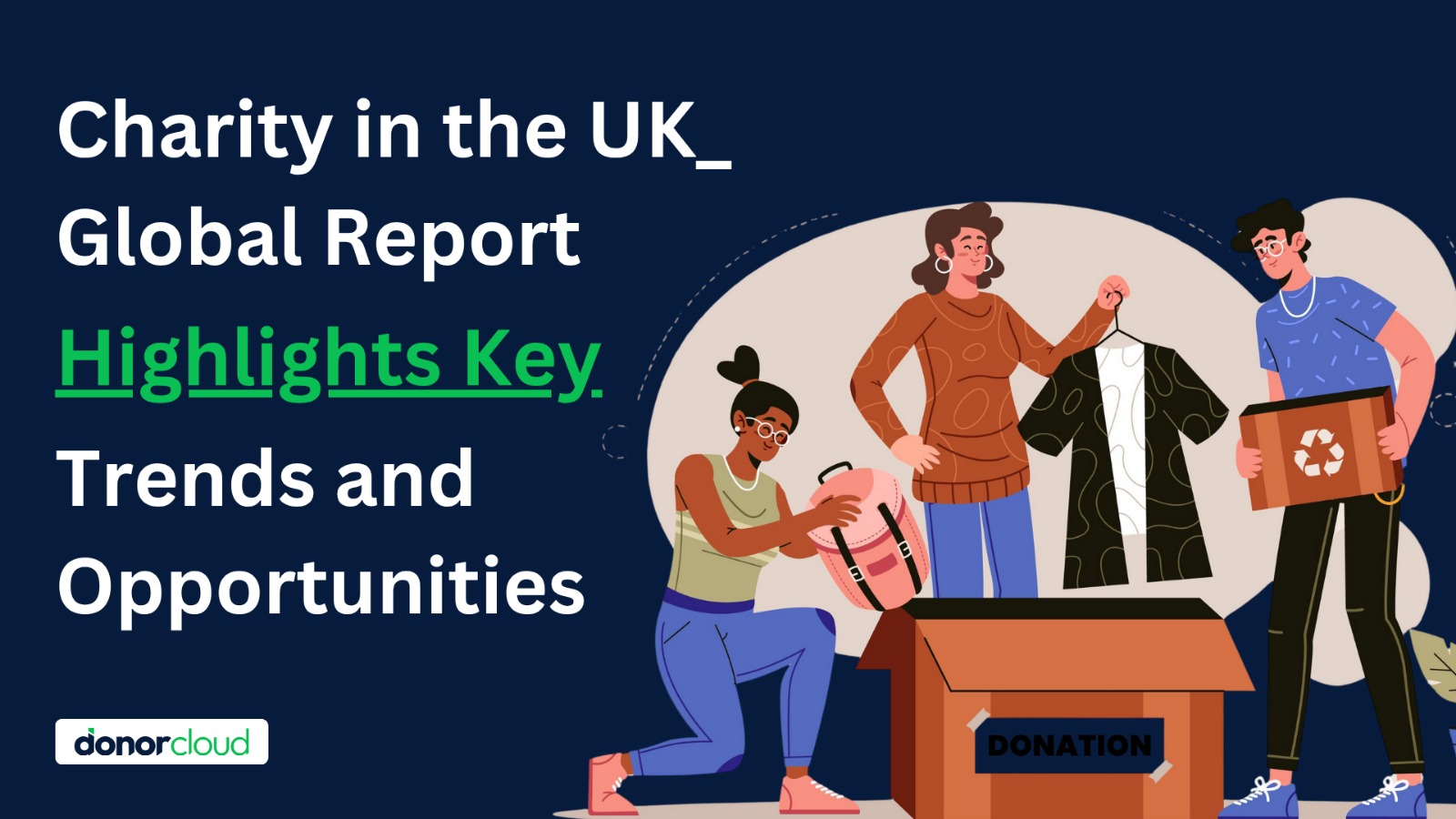The CAF World Giving Report 2025 has revealed new data about how people give across the world. It shows that the United Kingdom is currently ranked 64th out of 101 countries. This is a major shift for a country long considered to have a strong culture of giving.
This report was published by the Charities Aid Foundation (CAF) and presents findings from over 50,000 people across the globe. The results are based on three key questions:
- Did you help a stranger in the past month?
- Did you donate money to charity?
- Did you volunteer your time?
The CAF World Giving Report has become one of the most trusted sources for understanding global giving behaviours. You can read the full report at the World Giving Report website.
Let’s look at what this means for people, charities, and funders in the UK.
Table of Contents
ToggleThe UK’s Surprising Fall in the Rankings
In this year’s report, the UK ranks 64th. This is a notable drop from previous years. For a country with a well-developed charity sector, strong Gift Aid policies, and public fundraising campaigns, this result has raised some questions.
The drop does not mean that people in the UK have stopped caring. Instead, it may reflect how people are struggling financially or choosing to help in less formal ways. With rising costs of living, war in Ukraine, and ongoing economic uncertainty, household giving may be changing.
Still, a lower ranking might be a sign that traditional methods of fundraising are less effective today. It’s time to look at how we can better support giving across all parts of society.
What the Report Tells Us About Global Giving
The CAF World Giving Report 2025 does more than rank countries. It helps us understand patterns. It found that people in low-income countries gave twice as much of their income compared to those in high-income countries like the UK.
According to the data, people in high-income countries gave just 0.70% of their income to charity. People in low-income countries gave 1.45%. This means that the poorest people are giving more, in proportion to their income.
The report shows that generosity is not always linked to wealth. Instead, it is more connected to local community values, personal experience, and compassion. People give when they see need around them.
How the UK Compares Globally
The United Kingdom’s 64th place puts it behind countries like Indonesia, Kenya, and Ukraine. Some people might be surprised by this, but there are reasons behind it.
In many lower-income countries, helping others is part of daily life. There may be fewer government safety nets, so people step in to support neighbours, friends, and strangers. In contrast, people in wealthier nations often rely on formal services and charities.
This doesn’t mean people in the UK are less generous. It simply means they give in different ways or through different systems. For example, payroll giving, direct debits, and large legacy donations might not show up clearly in global surveys.
Still, the UK’s position in the report is a chance to reflect on what giving means today—and how we can encourage more of it.
The Most Common Ways People Give
The report found that the most popular type of giving worldwide was helping someone directly. Around 38% of people gave to someone in need. This was followed by 36% who gave to a charity, and 25% who gave for religious reasons.
In the UK, this trend appears to be similar. Giving directly to a cause or person feels more personal and immediate. It’s also easier now, with digital platforms, crowdfunding, and online fundraisers.
That may be another reason why traditional charity giving appears to be lower. Many donors now use new tools to give, and some do not see these as “charity” even though they help others just as much.
Local Giving Is Still Strong
One of the strongest findings in the report is that people prefer to give to causes close to home. Globally, 71% of people supported local or regional causes. In the UK, this reflects the growing focus on community-based organisations.
Only 46% of respondents said they gave to national charities. Even fewer. just 23%, supported international causes. This shows that people want to see the impact of their giving. Local issues, from food banks to youth centres, often feel more urgent and personal.
For UK charities, this trend is an opportunity. Organisations that focus on local impact can build stronger relationships with supporters. It also means fundraisers should be clear about where donations go and how they help communities.
Why Volunteering Still Matters
Alongside financial giving, volunteering is another key part of generosity. The CAF report found that 26% of people globally volunteered their time in the past year. On average, each person gave around nine hours of volunteer work.
Although the report doesn’t give specific UK figures for volunteering, other sources suggest that volunteer levels have been affected by the pandemic and economic pressures. Many people want to help but face challenges in time, health, or transport.
Still, volunteering remains one of the most powerful ways to give. It creates strong social bonds and gives people a sense of purpose. For many charities in the UK, volunteers are the backbone of services.
It’s important for UK organisations to make volunteering more flexible and accessible. That could include short-term roles, remote volunteering, or digital mentoring.
Giving to Children and Youth Causes
The report highlighted that the most common cause supported worldwide was helping children and young people. In the UK, this is also true.
Whether it’s school meal programmes, after-school clubs, mental health support, or sports projects, people are passionate about helping children thrive. This is a positive sign. Supporting young people builds stronger communities for the future.
UK charities working with children should highlight this in their communications. People are more likely to give when they understand the long-term impact of their donation.
Why People in the UK Are Still Generous
Despite the low ranking, there are many reasons to believe the UK is still a generous country.
The drop in position may reflect different giving styles rather than a lack of care. UK donors often give through tax-efficient methods, like Gift Aid. They also give large donations through wills and estates. These forms of giving may not be counted in the global survey.
Also, many people give informally. They help neighbours, cook for others, or support friends during difficult times. These acts of kindness are often not counted as “charity” but make a big difference in daily life.
What This Means for UK Charities
This new data is a chance for charities in the UK to rethink how they connect with supporters. People want to feel that their giving matters. They want to know that their donation will go far and help someone close to home.
Charities can use this moment to improve their communication, be more transparent, and offer flexible ways to give. That includes making it easier to give small amounts, sign up for regular giving, or volunteer from home.
Also, charities should show the impact of each donation. Whether it’s feeding a family, supporting mental health, or helping a young person into work, stories matter.
What DonorCloud Thinks
At DonorCloud, we believe that giving is more than numbers. It’s about connection. It’s about kindness. It’s about people supporting one another in ways that build trust, hope, and opportunity.
This year’s CAF World Giving Report shows that while the UK’s official ranking may be low, the spirit of giving is still alive. It just looks different than before.
DonorCloud helps UK charities reach new supporters, make giving easy, and show real-time impact. We support modern giving habits, whether it’s by phone, laptop, or face-to-face, because generosity should be simple.
Moving Forward Together
Now is not the time to panic. The UK still has one of the most developed charity sectors in the world. Millions of people give each year, whether by money, time, or kindness.
But this is also a moment to ask deeper questions. Are we making giving accessible? Are we encouraging younger people to give? Are we helping people see how they can make a difference?
Let’s take this opportunity to renew our commitment to generosity. Let’s help each other give better, smarter, and more often.
With the right tools, the right message, and a clear purpose, the UK can climb the rankings again,not for the numbers, but for the real lives behind them.





